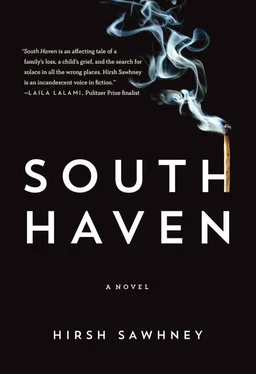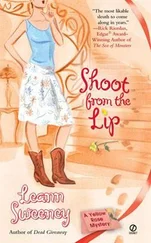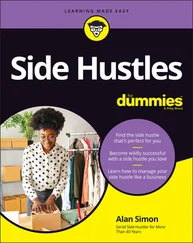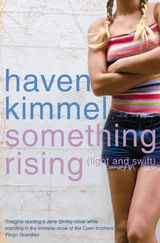In that moment, Siddharth saw his older brother for what he was: a traitor. He loved Muslims, and he hated America. He was more loyal to Ms. Farber than to their own father.
Ms. Farber closed her planner with a thump. “Arjun, your father’s a very learned man. And last I heard, this is a democracy.”
That’ll teach him, thought Siddharth.
Arjun stood up, his chair squeaking against the wooden floor.
“Sit down,” said Mohan Lal.
“Don’t tell me what to do. Rachel, you of all people should understand. The Muslims, they’re just like the Jews.”
She gave him a hard stare. “That’s hard to believe, Arjun. And a little insensitive.”
Arjun yanked the newspaper from Siddharth. “Here, read it for yourself.”
“Hey, I was reading that,” said Siddharth.
Ms. Farber placed her reading glasses back on her freckled nose. “Is this the one?”
Arjun was pacing around the kitchen. “No, it’s the other one about Hindu-Muslim violence.”
She clicked her tongue, then started reading to herself. Arjun interrupted and told her to read the piece out loud. “Siddharth should hear this,” he said. “He should know what his family is really all about.”
“You know, you and your father are actually quite similar.” Ms. Farber cleared her throat. “‘Shattered Dreams of Democracy’ by Arup Sengupta. During the first weeks of the year, the journalist Tiliptuma Sharma Sengupta — my daughter-in-law — was covering the so-called “Bombay Riots,” which have claimed the lives of thousands of individuals, some Hindus, but mostly Muslims. On the evening of January 18, she was looking on as a Hindu mob gathered in a busy commercial locality, home to printing presses and clothing stores. These shops were owned by Hindus, Muslims, Christians, and Parsis, an unsurprisingly eclectic mixture of people in one of the world’s most historically cosmopolitan metropolises.”
Siddharth was listening, but he couldn’t make much sense of what was being read. He had never been to Bombay. His relatives had told him that it was even dirtier than Delhi.
“The Hindu mob started chanting slogans about their motherland. A few men broke away, entering certain stores and pulling out various shopkeepers. Each of the stores they targeted had a Muslim proprietor, and the men who were pulled onto the street were also Muslims, though you wouldn’t have been able to know this by looking at them. They were wearing western—”
“Skip to the next paragraph,” said Arjun.
“Three Hindu men proceeded to throw tires around one of these Muslims, a young man named Hassan Khan, and they doused him in petroleum. My daughter-in-law struggled to get in front of the assailants, but the mob thwarted her efforts. The Hindu rioters then lit Mr. Khan on fire. As he burned to death, he begged for mercy, but not a single person came to his rescue.”
As Ms. Farber read, Siddharth found himself intrigued. The things she was reading seemed like something from a movie — not events that could happen in real life.
“My daughter-in-law ran toward a group of loitering policemen standing five hundred feet away. She implored them to intervene, but they ignored her, even after she had flashed her press credentials. Later, she tried to print an account of what she had witnessed in a major Indian newspaper, but her editor—”
“Enough!” snapped Mohan Lal. “Christ, I’ve heard enough.”
“Let her finish,” said Arjun. He seated himself on the kitchen counter.
“No,” said Mohan Lal. “We are having a family breakfast, not a seminar of your leftist propaganda.”
Ms. Farber removed her reading glasses and pinched the bridge of her nose. “This. . Mo, did this really happen?”
“Of course it happened,” said Arjun. “It’s right there in the Times. ”
“Yah, yah, yah,” said Mohan Lal, standing up. “That bloody paper is the gospel. Jesus, I can’t believe it — I’ve raised a bloody Congress-wallah.”
Arjun jumped off the counter and stood a foot away from his father. “Why does everything have to be so black or white with you? And for your information, Dad, you didn’t raise me.”
Siddharth could see spit fly from his brother’s mouth. He could see his father’s lips quivering. He wanted to intervene but remained frozen.
“Yes,” said Mohan Lal, “I just sat there and watched.”
“You said it,” said Arjun. “You know, Mom was right about you. Face it, you weren’t cut out for parenting.”
Ms. Farber reached for Mohan Lal’s wrist. “Arjun, I know you don’t mean that.”
“Oh, I do,” said Arjun. “But actually, I’m grateful. Thanks to my mother, I’m not a fascist. If it wasn’t for her, I might actually believe that people should die because of their religion. Who knows, I might even believe that a person should die because of the color of their skin.”
“Now Arjun, your father doesn’t think any of those things,” said Ms. Farber.
Mohan Lal stepped closer toward Arjun. “No, my son understands me quite well. Arjun, I have learned one truth in my life.”
“And what’s that, Dad? Please — share your wisdom.”
“What I’ve learned is that a Muslim can’t be trusted. The only good Muslim is a dead one.”
Arjun gritted his teeth. He clenched his fist and raised it behind his ear.
“Arjun. .” said Siddharth. Tears dripped from his eyes.
Mohan Lal smirked. “Yes, my Gandhian son. Go ahead, hit your father.”
Arjun glanced at him, then clasped his hands behind his head. “It’s funny,” he said, his voice cracking, “you spend your whole life reading, Dad, and yet you’re still like a child. You’re still so fucking ignorant.”
“Then why remain in my presence?” asked Mohan Lal. “Why remain in my home?”
“Finally, we’re on the same page about something.”
“Talking like a man is one thing. Acting the part is another.”
Arjun stormed to the guest room and slammed the door. Siddharth let himself in and watched as his brother hurriedly packed his duffel. Arjun then ran through the house and out the front door. He stowed his bag in the trunk of his borrowed Honda. As he got into the car, Siddharth literally clung to him. “Where are you going?”
“Home,” said Arjun, buckling his seat belt.
“But you are home.”
“No I’m not. This isn’t my home anymore.”
“If you go, I’ll tell him about your girlfriend.”
“You think I give a shit?” said Arjun.
“I’ll tell him you’re on drugs.”
Arjun lit a cigarette. He started the engine and rolled down the driveway. His tires squeaked as he charged up the hill.
Siddharth sat down on the front steps, allowing his salty tears to coat his tongue. He remained outside for fifteen minutes, but his brother didn’t return. The only vehicle that appeared belonged to the postman.
“Kid, I know what we gotta do,” said Eddie B., chewing on cheese-flavored popcorn. “We gotta get her mailbox. We’ll wreck that shit.”
Marc shook his head, his lips curled in a disdainful grin. “What a bunch of losers. You don’t have anything better to do? Don’t you know any women?”
“Eddie, it’s not happening,” said Luca. He grabbed the popcorn and flicked his bangs to one side. “She’s on the other side of 34. It’ll take us all night to walk it.” His left hand was wrapped around the rubber penis he’d stolen from the head shop beside his father’s salon. Occasionally, he swung this object over his head, as if it were a lasso.
“We can take your mom’s shitter,” said Eddie, his orange eyebrows arching. “It’ll fit right in with all that white trash.”
Читать дальше












